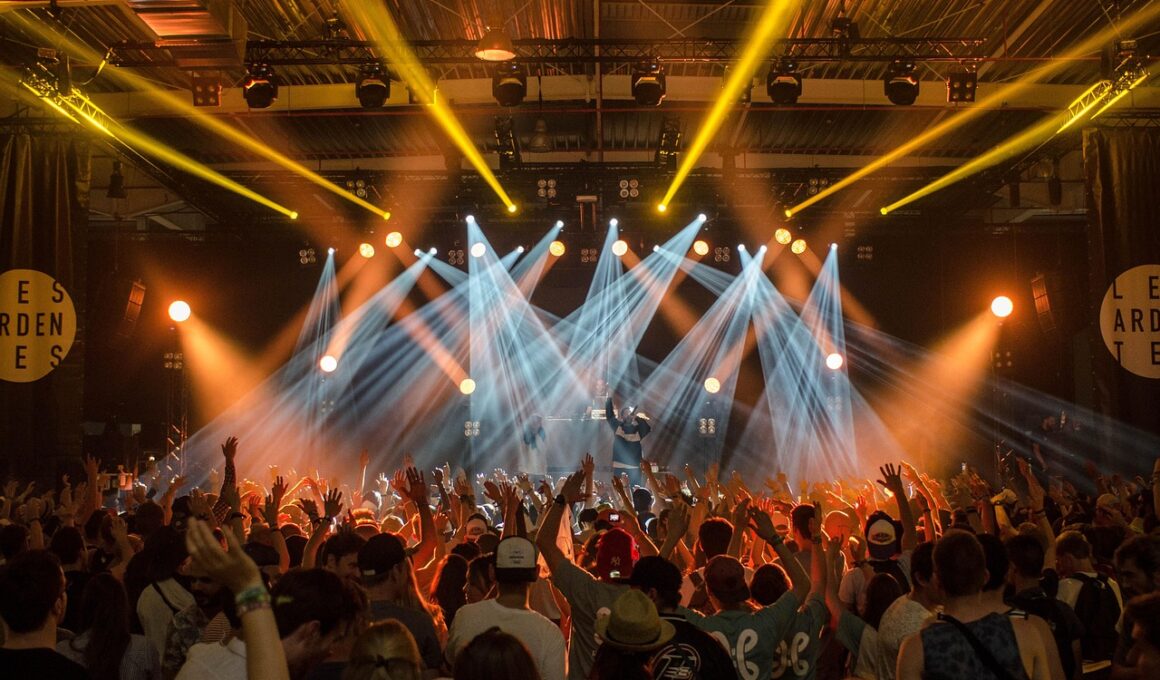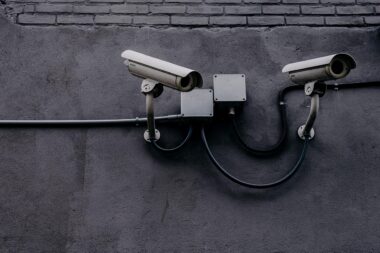Situational Awareness for Event Attendees: Staying Safe at Concerts and Festivals
Attending concerts and festivals can be exhilarating experiences, packed with music and camaraderie. However, these gatherings also pose unique safety challenges. Awareness of your surroundings is key to ensuring a secure and enjoyable experience. Situational awareness involves understanding your environment, recognizing potential risks, and being prepared to respond if necessary. Start by familiarizing yourself with the venue layout; identify exits and safety stations. Keep an eye on the crowd dynamics—notice if the crowd becomes overly packed or agitated. This awareness can help you navigate effectively and reach safety quickly. Moreover, it’s vital to establish safe spots within the venue where you can regroup with friends if separated. Stay alert and maintain a comfortable distance from potential disturbances, whether they are overly aggressive attendees or security issues. Use technology smartly; mobile apps can enhance your situational awareness by providing real-time updates on safety issues or changes within the festival environment. Always trust your instincts; if something feels off, prioritize your safety and move accordingly. By cultivating situational awareness, you can significantly improve your safety while enjoying live events.
Understanding Your Environment
Your environment during concerts and festivals plays a significant role in your safety. Pay attention to the specific details that can affect your security. Understanding the layout and crowd dynamics is essential. Before attending, consider reviewing maps of the venue, both online and on-site. Look for emergency exits, first aid stations, and your designated meeting points. Familiarize yourself with the location of security personnel. If you have particular concerns, it helps to know who to approach if issues arise. Keep an eye on the crowd; shifting population density may indicate trouble or a spontaneous reaction to something. People often react to music and events, which can escalate quickly if not monitored. If the energy feels high-strung or chaotic, consider relocating to a calmer area. Moreover, being conscious of your own feelings and stress levels can enhance your awareness. If you feel uncomfortable, it’s prudent to move away. Ultimately, an acute understanding of your environment, paired with the ability to adapt to any situation, will help keep you safe during crowded events. Awareness truly is your best defense, whether at a concert or festival.
Situational awareness extends beyond just noticing the immediate environment; it encompasses understanding the people around you as well. People-watching isn’t merely an idle pastime; it’s a safety measure. Assessing the behavior and demeanor of those in your proximity can give clues to potential risks. Look for individuals who appear overly intoxicated or aggressive. Such behaviors can escalate quickly in crowded environments. If you observe anything out of the ordinary, don’t hesitate to move or alert security. Keep in mind that even in peaceful gatherings, tensions can brew. Groups of people in close proximity can ignite conflicts, often without warning. Remaining aware of your surroundings includes recognizing exits which offer quick escape routes if needed. Additionally, staying connected with friends also acts as a safety measure. By sharing your location or designating check-in times through text messages, you create a safety net. Establish a plan for what to do if you get separated or encounter difficulties. When you maintain situational awareness by watching both the environment and its people, you empower yourself, enhancing your chances for a safe and enjoyable experience.
Communicating with Others
Effective communication acts as a crucial aspect of situational awareness at events. Keeping open lines of communication with your companions fosters a safer environment for everyone. Before the event, establish meeting points and agreed-upon times to check in with each other. This ensures that everyone knows where to go in case of separation. During the event, use your mobile devices or gestures to communicate quickly without drawing unnecessary attention to yourself. Additionally, be aware of conversations occurring around you; they might provide pertinent information regarding any potential disturbances or safety threats. If a situation turns concerning, promptly alert your group and make sure everyone is on the same page. Trust is essential; be sure to share your instincts about any feelings of unease. If someone in your group feels uncomfortable, listen to them and re-evaluate your surroundings together. Prompt discourse can lead to timely decisions, allowing you to adjust your plans safely. Overall, effective communication during events strengthens situational awareness and promotes a collective sense of responsibility among friends, which greatly enhances safety.
Always trust your instincts; if your gut feeling suggests that something is wrong, don’t hesitate to act. Your intuition often picks up on subtle cues that your conscious mind might overlook. Being attuned to your body’s responses helps you to identify when an area or situation may not be safe. For instance, if you observe a crowd behaving erratically or if you feel out of breath in a tightly packed area, seek a more open space. Moreover, regularly scan the crowd and environment as the event progresses. Monitoring changes in the atmosphere can save you from potential danger. Even friendly crowds can quickly become stressful if issues arise. It’s essential to stay vigilant while enjoying the music and festivities, ensuring that you balance fun with safety. If you notice a situation escalating, moving to a quieter area is often the best solution. You can also rely on event staff, as they are trained to manage crowd control and can help when needed. These instincts and observations go hand in hand; when coupled with situational awareness, they allow for a safer experience.
Taking Action When Necessary
In addition to being aware, knowing when and how to act is equally important. If you or a friend find yourselves in a distressing situation, it’s critical to respond appropriately without escalating tension. First, ensure your immediate physical safety; assess the situation from a safe distance before engaging further. If required, communicate to your friends to move to a designated safe area. If things escalate, contacting event security or local authorities should be your next course of action. The use of mobile apps can also provide real-time updates about safety alerts or crowd disturbances, thus aiding in decision-making. Additionally, participating in safety briefings offered at many festivals can provide valuable strategies to handle difficult situations. Mastering these techniques can significantly reduce panic and promote a calm demeanor in stressful moments. Often, quick decisions forged by planning can create a clear pathway for resolution. When immediate action is needed, ensuring everyone in your party is informed and aligned will increase your chances of maintaining safety. Remember, responding proactively not only safeguards you but also those around you.
In summary, the overwhelming excitement of concerts and festivals must also come with a solid understanding of situational awareness. Cultivating this awareness involves recognizing your environment, the behaviors of people around you, and being prepared to take action if necessary. You enhance your safety by fostering effective communication with friends and continuously assessing the atmosphere of events. Remember to trust your instincts and embrace proactive decision-making. Indeed, situational awareness isn’t merely a passive exercise; it transforms the way you engage with your surroundings. Whether you’re navigating bustling crowds or simply enjoying music, an acute sense of awareness can make all the difference. Engaging in situational awareness not only amplifies your safety but also deepens your overall enjoyment of the experience. Embrace this proactive mindset at concerts and festivals, and safeguard yourself fully while reveling in the festivities. As the music plays, let your awareness accompany you, refining your experience as you traverse through joyful moments. With the right tools and a mindful approach, attending events can become a harmony between enjoyment and safety.
As we’ve emphasized, prioritizing situational awareness is vital for anyone attending concerts and festivals. You are empowered by identifying potential risks, recognizing good versus bad energy within crowds, and communicating effectively with your party. Furthermore, honing these skills takes practice, so consider myriad events to gain experience. Being in the moment doesn’t mean sacrificing your safety. Indeed, situational awareness must become second nature to you at gatherings. The next festival or concert you attend can become a catalyst for positive experiences when coupled with effective awareness strategies. Enjoying these social instances should never come at the cost of safety. Therefore, while attending these events, encourage your friends and peers to adopt similar awareness practices. Together, you can cultivate a culture of safety. Overall, events should be enjoyed fully, but understanding the importance of awareness and preparedness is crucial. Equip yourself with the tools necessary to navigate any unforeseen risks effectively. Concerts and festivals should remain enjoyable, but recall that a little caution can go a long way in ensuring a fulfilling experience. Keep safety and fun in balance, allowing yourself the freedom to enjoy every beat.





